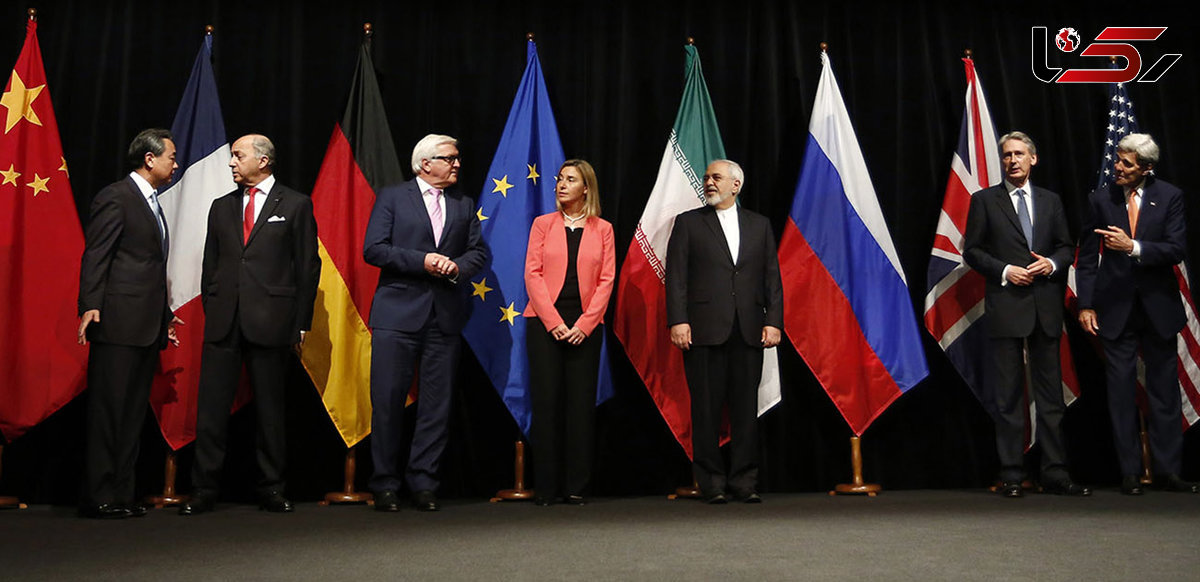Five Days Until the End of the JCPOA and Iran’s Nuclear Restrictions
Rakna Political Desk: On October 17, 2025, under the terms of the Joint Comprehensive Plan of Action (JCPOA), Iran’s nuclear file is scheduled to be removed from the United Nations Security Council’s agenda. However, three European countries have attempted to prevent the full lifting of restrictions by triggering the so-called “snapback mechanism,” a move experts describe as politically motivated and legally unfounded, reflecting pressure from the United States.

According to Rokna, the Iran nuclear agreement with the P5+1 group was signed in July 2015 in Vienna, aiming to lift international sanctions in exchange for a temporary limitation on Iran’s peaceful nuclear program. Iran fully complied with its commitments, including reducing enrichment levels, limiting centrifuge use, and redesigning the Arak reactor. Yet, Western parties—even during the Obama administration—failed to fully implement the promised economic benefits.
Following the official U.S. withdrawal from the JCPOA in May 2018 and Europe’s inability to compensate for the damages, the agreement effectively lost its efficacy. The European financial mechanism, INSTEX, yielded no tangible results, leaving Iran deprived of promised benefits.
According to Article 8 of UN Security Council Resolution 2231, the Security Council is obligated to lift all provisions of the resolution and remove Iran from its agenda ten years after the agreement, i.e., on October 18, 2025. From an international law perspective, this date should mark the official end of nuclear restrictions and Iran’s exit from the Chapter VII framework of the UN Charter.
Snapback Claims: Political Battle Rather than Legal Argument
As this deadline approaches, three European countries have invoked Articles 36 and 37 of the JCPOA to claim activation of the “snapback mechanism.” Russia and China immediately condemned the move as illegal, asserting that Europe lost the authority to invoke such a provision after the U.S. exit from the agreement. Analysts argue that Europe’s actions are primarily political, aimed at preventing Iran’s return to normalcy in the international system rather than grounded in legal legitimacy.
Tehran’s Position: Resolution Expiration and Sanctions Non-Restoration
Iranian Foreign Minister Abbas Araghchi has emphasized that Resolution 2231 will expire on October 17 and that any attempts to reinstate sanctions are “null and void.” He described the European action as a misuse of legal procedures and reaffirmed that lifted sanctions cannot be restored. In line with this, Ebrahim Rezaei, spokesperson for the Iranian Parliament’s National Security Commission, stated that upon the expiration of the resolution, Iran will exit Chapter VII of the UN Charter and will no longer be obligated to adhere to JCPOA limitations. According to him, if the snapback claim is accepted, the JCPOA would essentially cease to exist, allowing Iran to pursue an independent path.
Snapback Mechanism: European Psychological Operation
International affairs expert Fouad Izadi noted that disagreements within the Security Council indicate that the snapback mechanism has not been formally activated. He described Europe’s actions as a psychological operation and warned that domestic media coverage should not cause economic anxiety, as Security Council decisions do not have direct enforceability over Iran.
Legal Reinforcement of Iran’s Position
International law experts point out that the U.S. and Europe have failed to implement their JCPOA obligations for years and therefore lack the legal authority to invoke snapback provisions. Without cooperation from Russia and China, no Security Council decision can be enforced. The head of Iran’s Judiciary Lawyers Center has suggested that Iran prepare legal notes through academic institutions and register them with the UN Secretariat to formally document the expiration of the resolution as a binding legal fact.
Redefining Foreign Policy Post-JCPOA
The end of the JCPOA offers an opportunity for Iran to redefine its foreign policy. Given repeated Western breaches of trust, prioritizing domestic capabilities, expanding cooperation with non-Western countries, and leveraging multilateral diplomacy are the most rational paths forward.
Foreign Ministry spokesperson Esmaeil Baqaei criticized the three European countries’ actions as legally baseless, causing confusion within the Security Council, and described the move as obstinate compliance with U.S. demands.
October 17, 2025, could mark a historic turning point for Iran’s nuclear file—a day symbolizing the end of a decade of restrictions and the beginning of a new phase of nuclear and political independence. If the Security Council acts according to the explicit text of Resolution 2231, Iran will formally exit Chapter VII of the UN Charter. However, if the West persists in a political interpretation of the law, Tehran will have multiple options to pursue an independent course.
The JCPOA was more than a nuclear agreement for Iran; it was a costly lesson in Western duplicity, coercion, and double standards. The deal demonstrated that even when Iran negotiates in good faith, its partners can undermine trust through sanctions, pressure, and selective interpretations of commitments.
The U.S.’s unilateral withdrawal from the JCPOA and Europe’s inaction highlighted that, in the Western power logic, “national rights” only matter when aligned with their interests. The JCPOA thus served as a practical lesson in political realism for Iran, reinforcing that true national strength derives from domestic capabilities, national authority, and unity against external overreach.
Experts argue that the end of the JCPOA, if managed intelligently, could usher in a new era of realism and national power in Iran’s foreign policy.
Send Comments